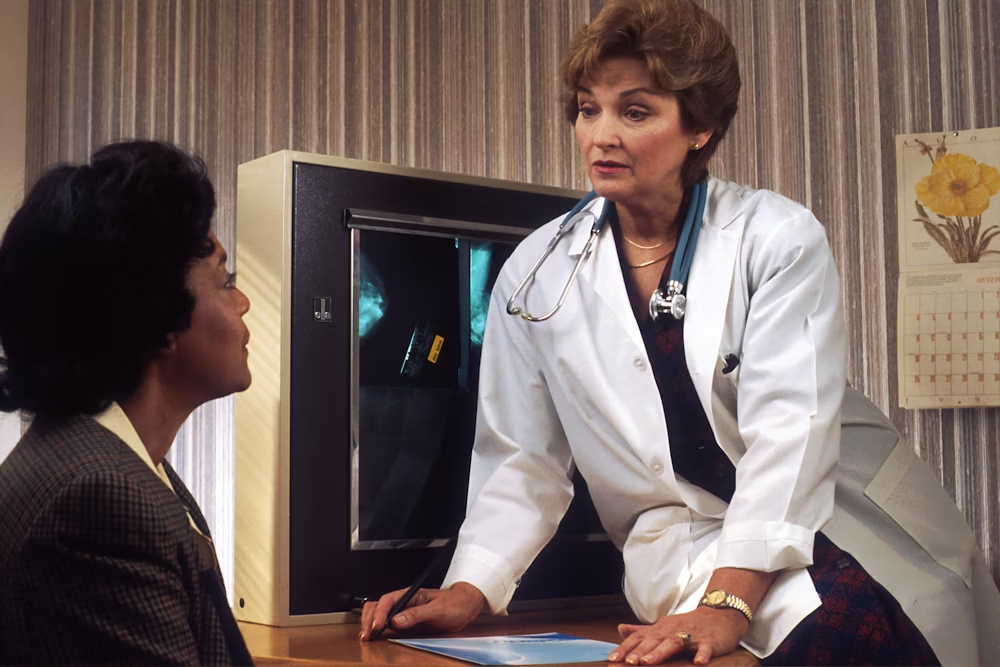Don’t Delay! Schedule your cancer screening today!
The Surprising Truth Behind the Latest Cancer Screening Techniques

Introduction: Importance of early cancer detection
Cancer, a word that strikes fear into the hearts of many, is a formidable adversary that spares no one. On the battlefield against this silent killer, early detection reigns supreme as the ultimate weapon. Pancreatic cancer, known for its elusive nature and high mortality rate, highlights the critical importance of timely screening. According to recent guidelines issued by medical experts, early detection through screening can significantly increase survival rates and provide patients with more treatment options.
Imagine a scenario where a routine screening test could be the difference between life and death. This article delves into the world of cancer screening, shedding light on why procrastination could cost you invaluable time in your fight against one of humanity’s deadliest foes. Join us as we uncover the crucial reasons why scheduling your cancer screening today is not just an option but a lifesaving imperative.
Common Cancer Screening Methods: Mammograms, colonoscopies, and blood tests
Mammograms, colonoscopies, and blood tests play key roles in cancer detection, but the effectiveness of these screening methods can vary. Mammograms are highly recommended for women over 40 to detect breast cancer early on, but false positives can sometimes lead to unnecessary anxiety. On the other hand, colonoscopies are crucial for detecting colorectal cancers and precancerous polyps, with guidelines suggesting screenings starting at age 50. While blood tests like PSA tests for prostate cancer or CA-125 tests for ovarian cancer can provide valuable information, they are not always definitive indicators of the presence of cancer.
Understanding the limitations and benefits of each screening method is essential for making informed decisions about one’s health. For instance, recent research has shown that combining different methods, such as mammograms, with additional imaging, like ultrasounds, can improve breast cancer detection rates significantly. Advancements in liquid biopsy technology allow for the detection of circulating tumour cells in the bloodstream., opening new possibilities for non-invasive early cancer detection. As we navigate urgent care settings and routine check-ups alike, staying informed about evolving screening guidelines and technologies remains pivotal in the fight against cancer disparities and late-stage diagnoses.
Mammograms
Mammograms play a crucial role in detecting breast cancer early, potentially saving lives and improving outcomes. However, it is essential to note that not all cancers are visible on mammograms, especially in women with dense breast tissue. This limitation highlights the importance of combining mammograms with other screening methods, such as MRIs or ultrasounds, to ensure thorough detection.
Recent developments in cancer research have led to new guidelines for pancreatic cancer screening. Early diagnosis of pancreatic cancer is known to be difficult because of its aggressive nature and the absence of specific symptoms. However, advances in imaging technologies and genetic testing offer promising opportunities for identifying individuals at high risk who could benefit from regular screenings.
As we continue to navigate the landscape of urgent care cancer screenings, it’s crucial to prioritize education and awareness about the various screening options available. Encouraging open conversations about the benefits and limitations of different screening methods can empower individuals to make informed decisions about their health. By staying proactive and informed about the latest developments in cancer screening guidelines, we can create a more effective approach toward early detection and prevention strategies.
Colonoscopies
Colonoscopies are a vital tool in cancer screening, particularly for detecting colorectal cancer at an early stage. However, recent research suggests that they also have potential benefits beyond colon health. Studies have shown a possible link between colonoscopies and a reduced risk of pancreatic cancer, leading some experts to suggest incorporating routine colonoscopies into pancreatic cancer screening guidelines. This new perspective highlights the importance of viewing cancer screening as interconnected, with screenings for one type of cancer potentially impacting the risks of others.
Furthermore, urgent care facilities are increasingly offering on-the-spot cancer screenings as part of their services. This convenient option allows individuals to undergo important screenings, like colonoscopies, without needing to schedule a separate appointment with a specialist. By making these screenings more accessible and convenient, urgent care centres are playing a crucial role in improving early detection rates for various types of cancer, including those that may not be traditionally associated with certain screening procedures like colonoscopies. Ultimately, this shift towards more comprehensive and accessible cancer screening options has the potential to save lives and improve outcomes for patients across the board.
blood tests
Blood tests play a crucial role in the early detection and monitoring of various health conditions, including cancer. Pancreatic cancer screening guidelines recommend certain blood tests to help identify potential signs of the disease at an early stage. These tests can measure levels of specific markers that may indicate the presence of pancreatic cancer, prompting further investigation and possibly leading to early treatment.
When it comes to urgent care cancer screening, blood tests are often utilized as a quick and efficient way to assess an individual’s overall health status. Recent advancements in technology have allowed for more accurate and sensitive blood tests that can detect even trace amounts of certain biomarkers associated with cancer. This has significantly improved the ability to diagnose cancer at earlier stages, increasing the chances of successful treatment outcomes and long-term survival rates.

Latest technological advancements: Artificial intelligence, liquid biopsies
Artificial intelligence (AI) has revolutionized the field of medicine, particularly cancer screening. The use of AI algorithms in analyzing medical imaging data has enabled more accurate and efficient detection of cancer at an early stage. This technological advancement not only improves patient outcomes but also reduces healthcare costs by minimizing unnecessary tests and procedures.
Liquid biopsies are another groundbreaking technology that is transforming cancer screening protocols. By analyzing biological markers in blood samples, liquid biopsies provide a less invasive option compared to traditional tissue biopsies. They provide real-time information about a patient’s tumour status, allowing for personalized treatment strategies tailored to individual needs. With the development of liquid biopsy-based screening guidelines for pancreatic cancer, healthcare providers can now detect this deadly disease at its earliest stages, leading to improved survival rates for patients.
In urgent care cancer screening, integrating AI with liquid biopsy techniques holds great promise for improving efficiency and accuracy. By combining these technologies, healthcare providers can streamline the diagnostic process and deliver timely interventions to patients in need. These advancements mark a significant leap forward in our fight against cancer, offering new hope for early detection and better treatment outcomes.
Artificial intelligence
Artificial intelligence continues to revolutionize the healthcare industry, particularly in cancer screening. With advancements in AI technology, medical professionals can detect and diagnose cancers at an earlier stage with greater accuracy. For instance, in pancreatic cancer screening, AI algorithms have been created to analyze radiology images and detect potential abnormalities that may indicate the presence of cancerous growths. These tools not only aid in early detection but also help streamline the decision-making process for urgent care cases where time is of the essence.
Furthermore, the incorporation of AI in cancer screening has opened doors for personalized medicine strategies customized for each patient. By leveraging machine learning algorithms and big data analytics, healthcare providers can offer more precise treatment recommendations based on a patient’s genetic profile, lifestyle factors, and medical history. This shift towards more targeted and efficient care has the potential to improve patient outcomes and reduce unnecessary interventions significantly. Overall, artificial intelligence is reshaping how we approach cancer screening and treatment, offering innovative solutions that hold promise for saving lives and enhancing the overall quality of care.
Liquid biopsies
Liquid biopsies are revolutionizing the field of cancer screening by offering a minimally invasive and efficient method for detecting and monitoring various types of cancer. One area where liquid biopsies are making a significant impact is in pancreatic cancer screening, a disease known for its aggressive nature and poor survival rates. With recent advancements in technology, liquid biopsies have shown promise in detecting pancreatic cancer at earlier stages, when treatment options are more effective. This has sparked discussions around updating existing guidelines to incorporate liquid biopsy testing as part of routine screenings for high-risk populations.
Moreover, urgent care facilities recognize the potential of liquid biopsies to provide quick and accurate cancer screenings to patients who may not have immediate access to specialized oncology centres. By offering liquid biopsy tests on-site, urgent care centres can expedite the diagnostic process and facilitate timely interventions for individuals at risk of developing or already diagnosed with cancer. This innovative approach not only enhances patient care but also underscores the importance of integrating cutting-edge technologies like liquid biopsies into primary healthcare settings to improve overall outcomes in cancer management.
Benefits of early detection: Higher survival rates, less invasive treatments
Early detection of cancer through screening programs has been proven to increase patient survival rates significantly. With timely detection, treatment can be initiated at an early stage, when the cancer is more localized and easier to treat. This frequently results in less invasive procedures, decreasing the necessity for aggressive treatments such as chemotherapy and radiation therapy.
For instance, pancreatic cancer, known for its low survival rate, benefits greatly from early detection through guidelines such as urgent care cancer screening. By detecting pancreatic cancer at an earlier stage, patients have a higher chance of undergoing potentially curative treatments such as surgery or targeted therapy. This highlights the importance of following recommended screening guidelines and being proactive in seeking early detection services for improved outcomes and increased chances of long-term survival.
Addressing common misconceptions: Fear of results and discomfort during screenings
Many people frequently postpone or skip cancer screenings because they fear receiving negative results or feeling uncomfortable during the process. However, early detection through screenings can significantly increase the achievement of successful treatment and positive outcomes. While apprehension is natural, it is important to remember that knowledge is power when it comes to our health.
Moreover, advancements in screening technologies and techniques have made the process more accurate, efficient, and comfortable for patients. By staying informed about the latest guidelines and options for cancer screenings, individuals can make empowered decisions about their health while minimizing unnecessary anxiety. Embracing a proactive approach to screenings not only promotes peace of mind but also serves as a powerful tool for maintaining overall well-being.
How to Schedule a Screening: Contact the healthcare provider and discuss insurance coverage.
Once you have decided to schedule a cancer screening, your first step should be to contact your healthcare provider to inquire about insurance coverage. In many cases, insurance plans may cover the cost of certain preventive screenings, including those for cancer. By reaching out to your provider, you can understand what screenings are recommended for you based on your risk factors and medical history. Additionally, they can guide you on how to proceed with scheduling the screening and help you navigate any paperwork or authorization processes that may be required.
It’s important to remember that early detection is key to improving outcomes for cancer patients. By being proactive and following through with recommended screenings, individuals can increase their chances of detecting potential issues at an early stage, when treatment is most effective. As guidelines for various types of cancer screenings continue to evolve based on research and advancements in technology, staying in touch with healthcare providers ensures that patients are up-to-date on the latest recommendations tailored to their specific needs.

Conclusion: Take charge of your health today!
In conclusion, your health is one of the most valuable assets you have. By taking charge of it today, you are investing in a better future for yourself. Making small changes to your daily routine can have a big impact on your overall well-being. Remember that prevention is key, so prioritize regular check-ups and screenings. Embrace the opportunity to improve your health and commit to making positive choices every day. Start now and take control of your health journey!
Take action before health issues become emergencies. Being proactive about your health can make all the difference. Regular cancer screenings, such as pancreatic cancer screenings, can detect potential issues early on and greatly improve treatment outcomes. Remember that prevention is always better than cure.
Urgent care centers are increasingly offering convenient cancer screening services, making it easier than ever to prioritize your health. By staying informed about the latest guidelines and recommendations for cancer screenings, you can make informed decisions about your well-being. Take charge of your health today by scheduling that overdue screening or consultation with a healthcare professional—it could be the best decision you ever make for yourself.
FAQ: About Cancer Screening!
What are cancer screening tests?
Cancer screening tests detect cancer early, when it is most treatable. Advancements in technology offer various screening options. Urgent care centers provide convenient screening services, improving outcomes by promoting early detection.
What tests are done to detect cancer?
One common test for cancer is the CA-125 blood test, which measures protein levels linked to ovarian cancer. Imaging tests like CT scans, MRIs, and PET scans can also detect tumors. Liquid biopsies analyze blood for genetic mutations, offering a non-invasive way to monitor cancer. Molecular testing can detect specific mutations, helping doctors personalize treatment.
How much does a skin cancer screening cost without insurance?
Without insurance, skin cancer screening costs vary by provider and location. Urgent care center screenings may cost $50 to $200. However, this price does not include additional tests or procedures based on the results.
Early detection is crucial for treating skin cancer. Regular screenings are important, despite the cost. Financial assistance and low-cost screenings are available for those without insurance.
Pancreatic cancer screening guidelines vary for individuals with a family history. Personalized risk assessment and tailored screening strategies are emphasized for earlier detection.
Does Blue Cross Blue Shield cover lung cancer screening?
Blue Cross Blue Shield covers lung cancer screening for high-risk individuals, following guidelines for early detection and successful treatment. Early detection is crucial for positive outcomes, and comprehensive coverage promotes early detection and improved outcomes.
What are the three types of screening?
Three types of cancer screening methods—genetic testing, imaging tests, and lab tests—aid in early disease detection. Genetic testing identifies gene mutations linked to cancer risk. Imaging tests like mammograms and CT scans find body irregularities hinting at cancer. Lab tests detect markers suggesting cancer. Knowing these methods is vital for timely intervention. Urgent care centers offer convenient screenings, boosting early detection rates. Adhering to screening guidelines enhances treatment outcomes, empowering individuals to battle cancer.
Who has cancer screening guidelines?
Cancer screening guidelines by respected organizations like ACS, USPSTF, and NCCN offer evidence-based recommendations on when and how often to conduct screenings based on age, risk factors, and family history. For pancreatic cancer, high-risk individuals should consider specialized screenings, while general population-wide tests aren’t advised due to limited evidence supporting their effectiveness in early-stage detection.



